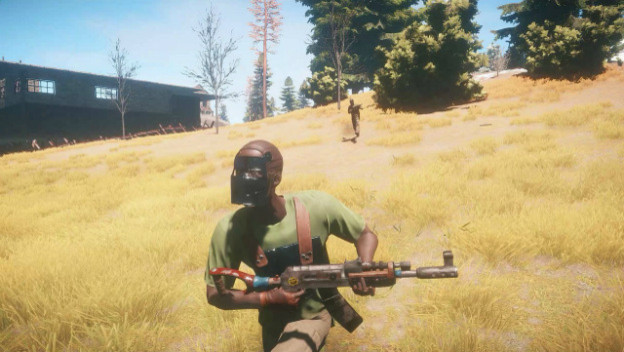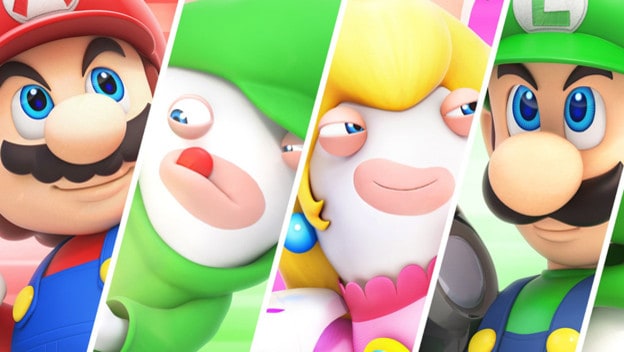Game publishers have been struggling with information flow as of late. The number of leaks this year alone has been wild, and a lot of them have been leaks because of official materials being sent out to retailers ahead of official announcements. People don’t want to keep secrets anymore, especially if they aren’t already involved with a game’s marketing or PR strategy.
Video games are often alone in their industry-level secrecy, something that frustrates and disillusions consumers. This especially holds true as vgaming is a relatively young medium with evolving business practices. Things like DLC and Season Passes frustrate the people paying for them, especially when information can be so vague and problems can arise. But a few publishers have been easing up on the reins a bit and people are responding super positively.
For example, let’s take a look at Ubisoft. Ubisoft happens to have been subject to two pretty substantial leaks this year, both ahead of E3. What would have been big announcements for Assassin’s Creed Origins and Mario+Rabbids: Kingdom Battle were both leaked in some form or another. These games ended up doing pretty well at the show of shows, but their impact was certainly lessened as everyone went to the event already knowing to expect their presence. Ubisoft did manage to pop off a big surprise with Beyond Good and Evil 2 , but that leads into what seems like the beginning of a new approach.
When Michel Ancel took the stage, he didn’t introduce a huge demo that ended up being playable on the show floor. He showed a trailer, spoke briefly of the game, and then introduced the Space Monkey program, a sort of early access initiation that will crowdsource some aspects of the game’s development. Right after E3, Ubisoft published a video of Ancel showing off a development demo of Beyond Good and Evil 2 , something that was super closed doors-only at E3. It gave a look at an in-progress game to a level Ubisoft hasn’t really shown off before.
Shortly after E3, Yves Guillemont, Ubisoft’s CEO, made some surprisingly candid comments on what’s next on the table for Splinter Cell . Rather than a coy, PR-like response, he straight-up said that Splinter Cell is happening, but it’s still in the pitching and proposals stage. He said that Ubisoft is fielding ideas, and that one would eventually be chosen. There’s not much info there, but it’s still a normal, conversational and open response that is not characteristic of a AAA publisher.
Part of the reason for this could be the Guillemont family is currently trying to fight off a stock takeover of Ubisoft by Vivendi. The huge company is trying to quietly buy majority ownership in Ubisoft, which would then require, by French law, the next step in a buyout process. Guillemont and everyone else running Ubisoft as an independent company don’t want this for several reasons, and may be trying new strategies to show that Ubisoft is a well-run company that doesn’t need to be restructured, therefore fostering a rock-solid reputation in the eyes of shareholding voters.
Nintendo is also uncannily opening up to the gaming community in a lot of ways it historically has not. It is still cagey about details concerning things like the Switch’s list of upcoming features and doing wonky things in the world of YouTube monetization, but there are cracks in the traditionally unbreathing armor. Nintendo is opening up more to communities such as esports with its Splatoon , ARMS and Pokken Tournament competitions, fostering relationships with pro players, commentators and other people involved in those communities.
Nintendo is also doing things like updating its games and releasing patch notes, something it hasn’t really disclosed in the past. Games like ARMS and Mario Kart 8 Deluxe , while excellent games, have had their share of problems, especially bugs. Those bugs are being fixed, and Nintendo is dropping detailed patch notes on its official website. Combining this with Reggie Fils-Amie’s increasingly candid interviews and consumer-focused ventures such as Nintendo Directs and Spotlights, and Nintendo’s reputation has steadily improved in the eyes of gamers recently. We also can’t forget that Nintendo has joined Microsoft in leading the charge on cross-platform play, something Sony is struggling with big time, and taking huge PR hits in the process.

Steam, a platform that is facing serious problems as of late with matters such as quality control and revenue for smaller games, is also seeing more openness in its public-facing areas. In addition to laying out new feature rollouts in explicit detail, Steam also seems to not mind when developers disclose all manner of minute details, even in terms of earnings and refunds. The developer of Rust recently disclosed its recent stats for both, which assuaged many fears people had about Steam users abusing the refund system when it launched.
Having this moments of openness compared to the usual, frustrating secrecy of the videogames industry goes a long way in terms of good will. Having a positive relationship with the communities who give you money in exchange for your products is a good thing; market unpredictability is at an all-time high, and things like sales and brand engagement rely more, now than ever, on companies having good standing with the people on the ground. As these interactions between publishers, fans, developers and marketing folks deepen and evolve, things like leaks may end up going the way of other industries, such as film, in which nobody really cares about them because information is generally readily available at a much faster pace.
